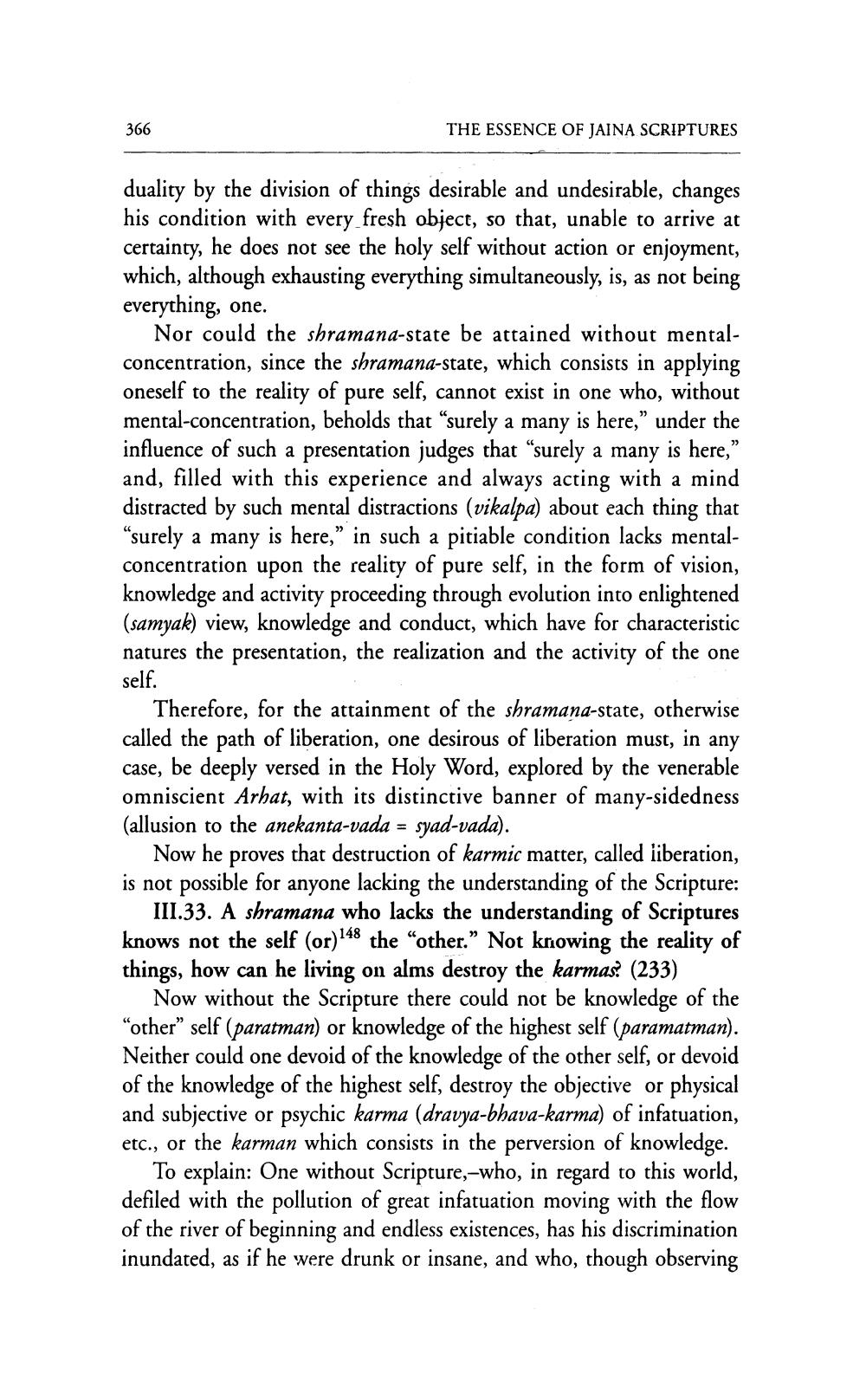________________
366
THE ESSENCE OF JAINA SCRIPTURES
duality by the division of things desirable and undesirable, changes his condition with every fresh object, so that, unable to arrive at certainty, he does not see the holy self without action or enjoyment, which, although exhausting everything simultaneously, is, as not being everything, one.
Nor could the shramana-state be attained without mentalconcentration, since the shramana-state, which consists in applying oneself to the reality of pure self, cannot exist in one who, without mental-concentration, beholds that “surely a many is here," under the influence of such a presentation judges that “surely a many is here,” and, filled with this experience and always acting with a mind distracted by such mental distractions (vikalpa) about each thing that “surely a many is here,” in such a pitiable condition lacks mentalconcentration upon the reality of pure self, in the form of vision, knowledge and activity proceeding through evolution into enlightened (samyak) view, knowledge and conduct, which have for characteristic natures the presentation, the realization and the activity of the one self.
Therefore, for the attainment of the shramana-state, otherwise called the path of liberation, one desirous of liberation must, in any case, be deeply versed in the Holy Word, explored by the venerable omniscient Arhat, with its distinctive banner of many-sidedness (allusion to the anekanta-vada = syad-vada).
Now he proves that destruction of karmic matter, called liberation, is not possible for anyone lacking the understanding of the Scripture:
III.33. A shramana who lacks the understanding of Scriptures knows not the self (or) 148 the other.” Not knowing the reality of things, how can he living on alms destroy the karmas? (233)
Now without the Scripture there could not be knowledge of the “other” self (paratman) or knowledge of the highest self (paramatman). Neither could one devoid of the knowledge of the other self, or devoid of the knowledge of the highest self, destroy the objective or physical and subjective or psychic karma (dravya-bhava-karma) of infatuation, etc., or the karman which consists in the perversion of knowledge.
To explain: One without Scripture,-who, in regard to this world, defiled with the pollution of great infatuation moving with the flow of the river of beginning and endless existences, has his discrimination inundated, as if he were drunk or insane, and who, though observing




